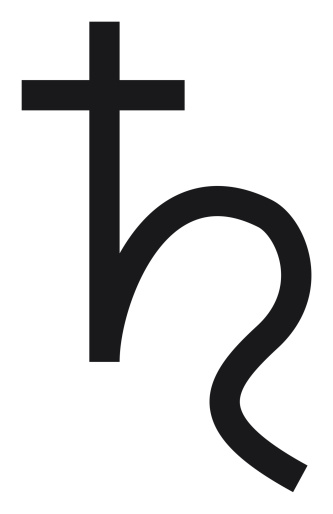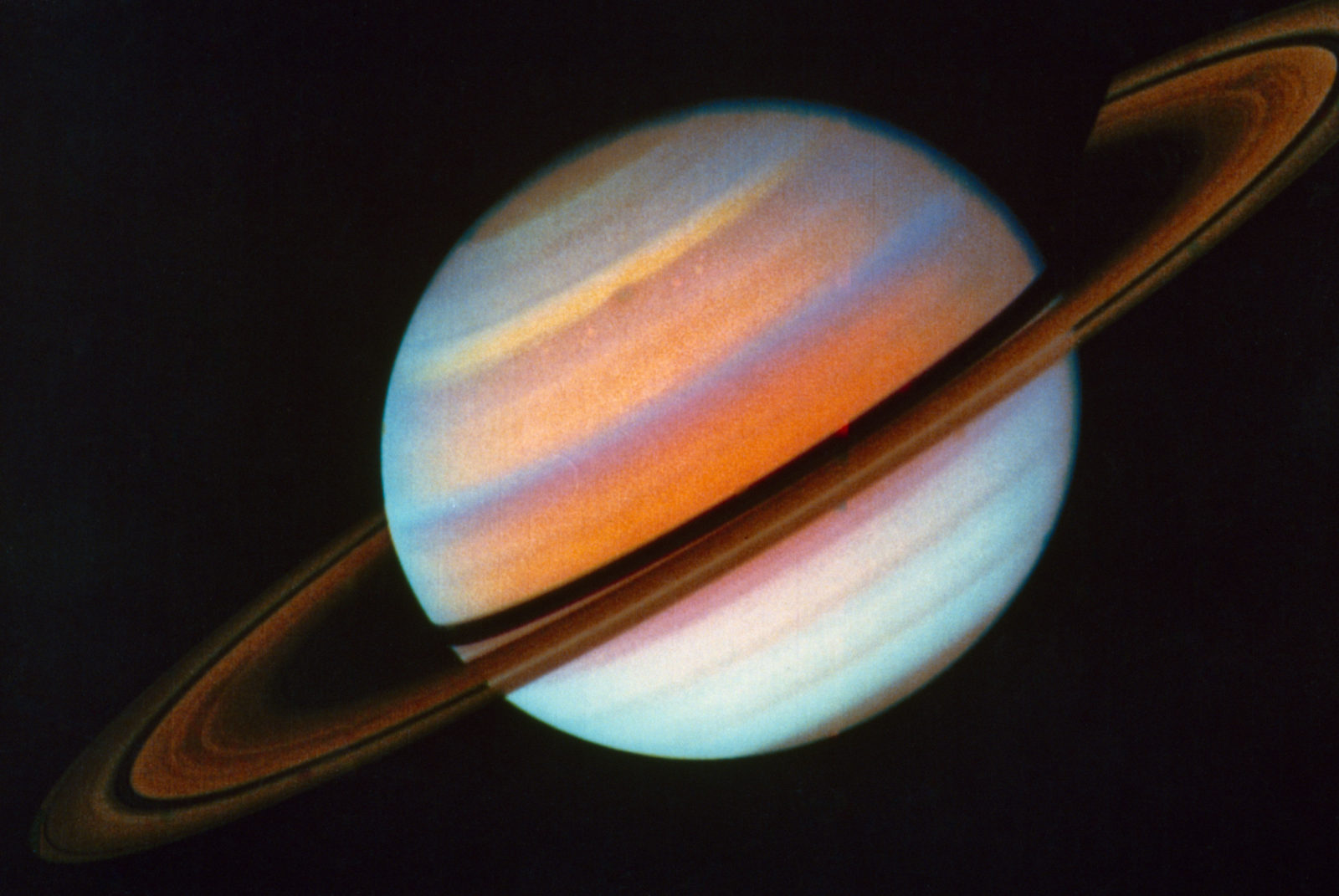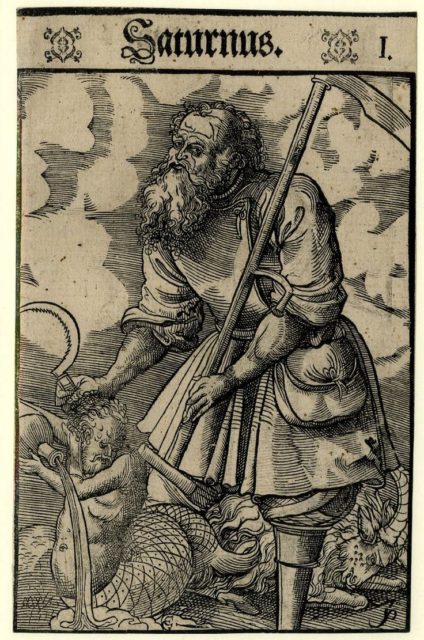Saturn in Greek and Roman Mythology
Saturn is an ancient god in the Greek/Roman pantheon, called Kronos in Greek, which means time. Saturn was a descendant of the sky god Uranus, ruler of the gods, and the earth goddess Gaia. Jealous of his father’s rulership over the entire heavens, Saturn fought and overthrew him, but destined himself to be overthrown by another.
To prevent this Saturn consumed all the other children that Gaia bore, his own siblings. The last child to be born was the god Zeus/Jupiter but Gaia tricked Saturn and gave him a rock disguised in swaddling clothes to eat instead. This saved Zeus and he was able to rescue his siblings, defeat Saturn, and take over rulership of the gods.
Saturn is the God of Time
Saturn relates to time, old age, and death. Saturn is associated with wealth and resources that are accumulated over time, with material substance that endures. Saturn also relates with the wisdom and refinement that can only come with age. In the ancient Roman forum the temple of Saturn housed the state treasury. The figure of Death with a hood and a scythe is a depiction of Saturn in his role as the “grim reaper”.
The Planet Saturn
Saturn is the sixth planet from the Sun, and is famous for its rings, which are possibly remnants from an old moon. Before telescopes Saturn was the most distant planet of the solar system visible with the naked eye. So in ancient astronomy Saturn is associated with finality, the last boundary before the great end.
The three outer planets- Uranus, Neptune, and Pluto– represent energies and phenomenon that relate to generational patterns, metaphysics, and subtle states of consciousness. It is thought that the “discovery” of these three outer planets starting in the late 1700s is related with humanities need for archetypical representation of phenomenon beyond the boundary of matter (Saturn).
In Astrology
Saturn rules the signs Capricorn and Aquarius, although earthy Capricorn expresses the qualities of Saturn in a much more direct way with its pragmatism, strength, and attachment to the past.
Aquarius, co-ruled by Uranus, expresses the Saturn rulership with preoccupations with structures, although it is more interested in subverting and even demolishing those structures (Uranus).
Saturn is associated with the law, material reality, taxes, death, and karma. Saturn’s influence astrologically brings difficulties, challenges, isolation, feelings of constriction, burdens, weights. Saturn cycles are approximately every 30 years and so bring about the confrontations of growing older and entering different phases of life.
The Symbol for Saturn
 This symbol is the cross of matter above the crescent of the soul. This shows the necessity of material reality, time, and the death of all things to temper our mind and emotions to bring wisdom. Time strips away superficiality and reveals the “bare bones” beneath all illusions and fantasies.
This symbol is the cross of matter above the crescent of the soul. This shows the necessity of material reality, time, and the death of all things to temper our mind and emotions to bring wisdom. Time strips away superficiality and reveals the “bare bones” beneath all illusions and fantasies.
If we can learn to embrace and accept Saturn as a wise teacher rather than run away from the realities of old age, sickness and death, we discover the secret beauty of this cosmic ray: refinement, perfection, and mastery.
Masters are not born, they are the result of years of submitting to discipline and learning from hardship, until the selfish egoic nature is purified.


